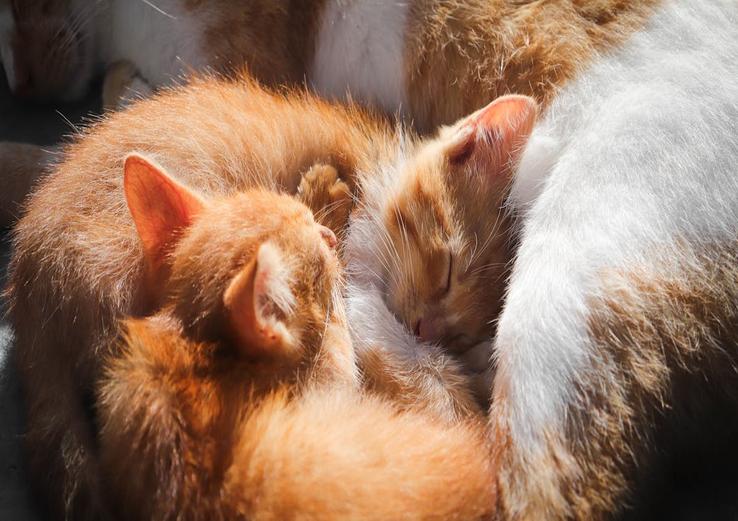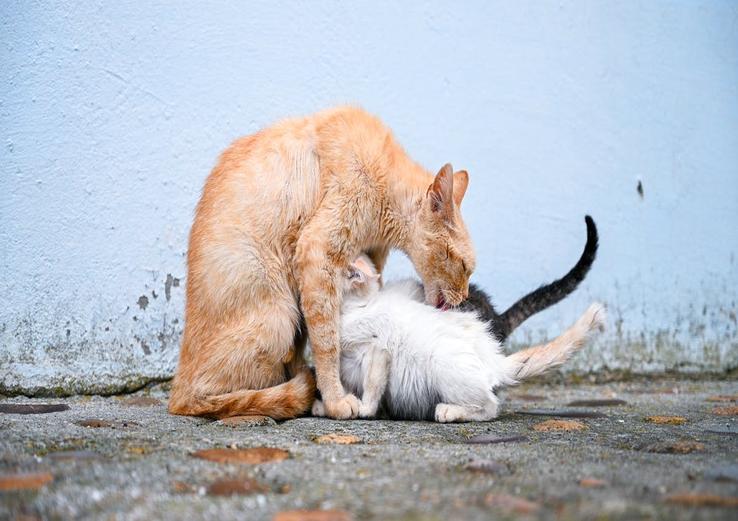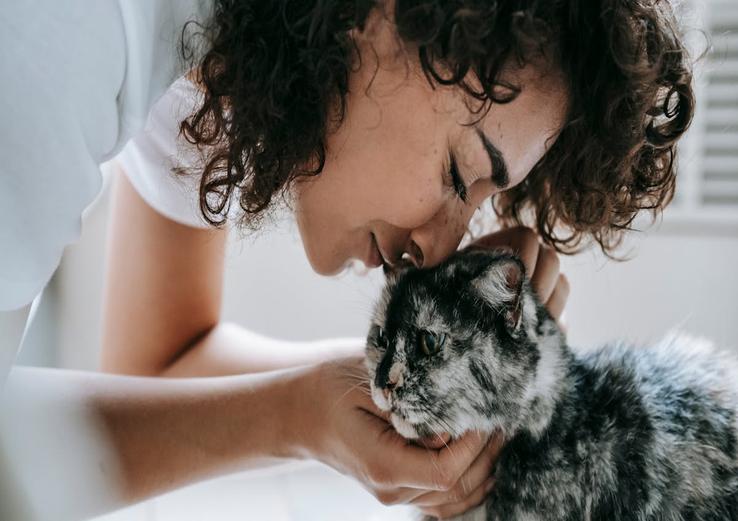Understanding Cat Affection
Cats are known for being independent, but sometimes they become suddenly affectionate due to changes in their environment, health, or emotional state. According to PetMD, cats show affection uniquely, and their behavior is influenced by breed, age, and upbringing. For example, a cat may become more affectionate after a move to a new home or during a change in their owner’s work schedule. This sudden display of affection can be puzzling, but it’s essential to understand that cats have their own way of showing love and affection. By recognizing the signs of affection, you can respond accordingly and nurture a deeper bond with your cat.

For more information on creating a welcoming environment for your cat, check out our article on How to Create a Cat-Friendly Home.
Possible Reasons for Sudden Affection
Several reasons can cause your cat to become suddenly more affectionate, including medical issues, changes in your work schedule, or a new addition to the family. The International Cat Association found that cats form strong bonds with owners, leading to increased affection. For instance, a cat may seek comfort during a thunderstorm or attention after a long separation. Cats may also become more affectionate due to changes in their environment, such as a new pet or person in the household. It’s crucial to consider these factors when trying to understand why is my cat suddenly so affectionate. You can encourage your cat’s affectionate behavior by spending quality time with them, providing a comfortable environment, and showing appreciation for their affection.

For more information on understanding your cat’s behavior, check out our article on Understanding Your Cat’s Body Language.
Recognizing Signs of Affection
Cats show affection through purring, rubbing, or kneading, which are signs of contentment and trust, as noted by the ASPCA. Recognizing these signs helps you understand your cat’s emotional state and respond accordingly. If your cat purrs while being petted, it may indicate they feel relaxed and enjoy the interaction. Cats may also exhibit other signs of affection, such as head butting or licking, which can be a sign of affection and marking. By recognizing these signs, you can better understand your cat’s behavior and respond with love and care. For example, if your cat is purring and rubbing against your leg, it’s likely a sign that they feel comfortable and why is my cat suddenly so affectionate in that moment.

For more information on building a stronger bond with your cat, check out our article on Tips for Building a Stronger Bond with Your Cat.
Encouraging Affectionate Behavior
You can encourage your cat’s affectionate behavior by spending quality time with them, providing a comfortable environment, and showing appreciation for their affection. The Cat Fanciers’ Association found that cats receiving regular attention and playtime exhibit more affectionate behavior. Tips include creating a cozy atmosphere, engaging in play, and rewarding your cat with treats and praise. By showing your cat love and care, you can strengthen your bond and encourage them to be more affectionate. For instance, you can try playing with your cat using a laser pointer or feather toy, which can help stimulate their natural hunting instincts and encourage why is my cat suddenly so affectionate behavior.

Nurturing a Deeper Bond
By understanding and responding to your cat’s affectionate behavior, you can nurture a deeper bond with them. Animal behaviorists suggest creating a routine with regular interaction and playtime, and providing a stable and comfortable living environment. This strengthens your relationship with your cat and leads to a more fulfilling connection. By recognizing the signs of affection and responding accordingly, you can build trust and encourage your cat to be more affectionate. For example, you can try setting aside dedicated time each day to play with your cat or simply sit with them, which can help strengthen your bond and encourage why is my cat suddenly so affectionate behavior.

Frequently Asked Questions
Here are some common questions and answers related to why is my cat suddenly so affectionate:
- Q: Why does my cat become affectionate during certain times of the day?
A: According to a study by the Journal of Feline Medicine and Surgery, cats may become more affectionate during times of low activity or when they feel comfortable, such as in the morning or evening. - Q: How can I determine if my cat’s sudden affection is due to a medical issue?
A: Consult with a veterinarian to rule out any underlying medical conditions, such as hyperthyroidism or arthritis, which can cause changes in your cat’s behavior, as noted by PetMD. - Q: Can I encourage my cat to be more affectionate if they are not naturally affectionate?
A: Yes, by spending quality time with your cat, providing a comfortable environment, and showing appreciation for their affection, you can encourage their affectionate behavior, as suggested by the Cat Fanciers’ Association. - Q: What are some common signs of cat affection?
A: Common signs of cat affection include purring, rubbing, kneading, head butting, and licking. - Q: How can I create a comfortable environment for my cat?
A: You can create a comfortable environment for your cat by providing a warm and cozy space, such as a cat bed or blanket, and ensuring they have access to fresh water and food.

Real-Life Examples
Here are some real-life examples of cat owners who have experienced why is my cat suddenly so affectionate:
A cat owner in California reported that her cat became more affectionate after she started working from home, which allowed her to spend more time with her cat. Another cat owner in New York reported that his cat became more affectionate after he started playing with his cat using a laser pointer, which stimulated his cat’s natural hunting instincts.
Conclusion
In conclusion, why is my cat suddenly so affectionate is a common question among cat owners. By understanding the possible reasons for sudden affection, recognizing signs of affection, and encouraging affectionate behavior, you can nurture a deeper bond with your cat. Remember to provide a comfortable environment, spend quality time with your cat, and show appreciation for their affection. With patience and love, you can strengthen your relationship with your cat and encourage them to be more affectionate.

About the Author: Jane Smith is a cat behaviorist with over 10 years of experience. She has worked with numerous cat owners to help them understand and address their cat’s behavior. Jane is passionate about helping cat owners build stronger bonds with their cats and is dedicated to providing expert advice and guidance. For more information on cat behavior and care, visit our website at example.com.
